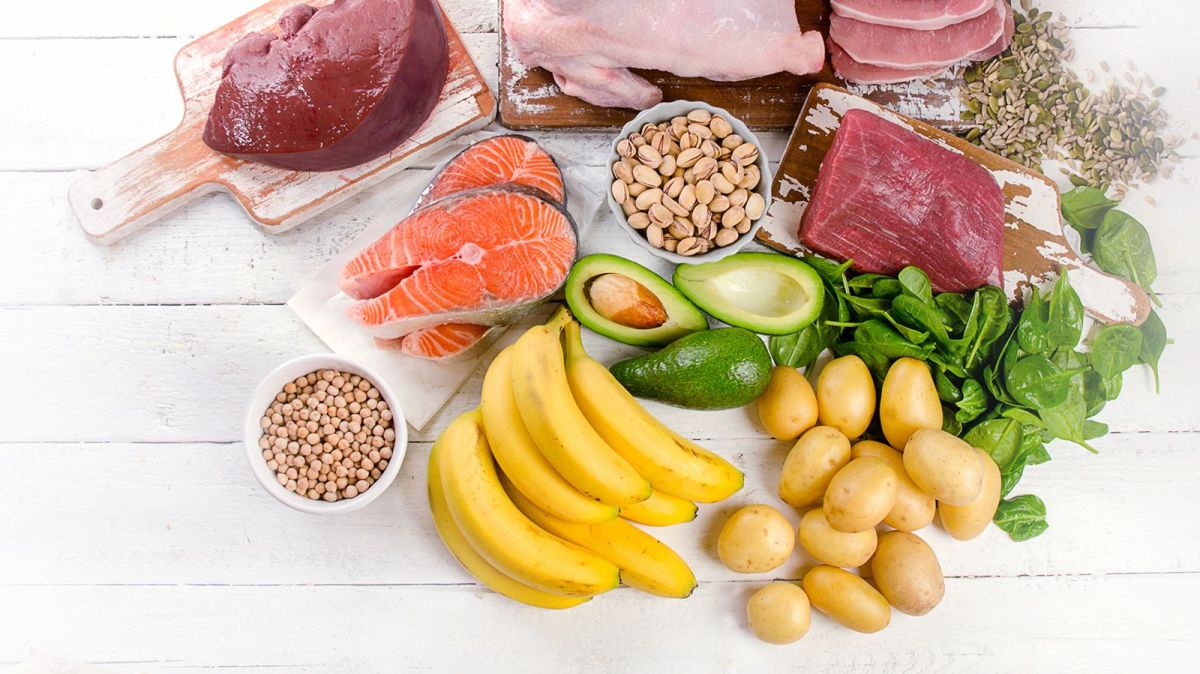Introduction
Anemia is a condition characterized by a lack of healthy red blood cells or hemoglobin in the blood, leading to reduced oxygen transport to tissues and organs. Vitamins play a crucial role in preventing various types of anemia by supporting red blood cell production and maintaining overall health.
Types of Anemia
1. Iron-Deficiency Anemia
Iron deficiency is the most common cause of anemia globally. It occurs when the body doesn’t have enough iron to produce hemoglobin, which is essential for red blood cells to carry oxygen.
2. Vitamin B12 Deficiency Anemia
Vitamin B12 is essential for the production of red blood cells. Deficiency can lead to megaloblastic anemia, where red blood cells are larger than normal and unable to function properly.
3. Folate (Vitamin B9) Deficiency Anemia
Folate is also crucial for red blood cell production. A lack of folate can cause megaloblastic anemia similar to that caused by vitamin B12 deficiency.
The Role of Vitamins in Preventing Anemia
1. Vitamin B12 (Cobalamin)
- How does vitamin B12 prevent anemia? Vitamin B12 is necessary for the synthesis of DNA in red blood cell production. It helps in the maturation of red blood cells and ensures their proper function.
- Which foods are rich in vitamin B12? Vitamin B12 is found in animal products such as meat, fish, dairy, and eggs. Fortified cereals and nutritional yeast are also sources for vegans.
2. Folate (Vitamin B9)
- How does folate prevent anemia? Folate is essential for DNA synthesis and cell division. It supports the production of red blood cells and helps prevent megaloblastic anemia.
- Which foods are rich in folate? Leafy greens (spinach, kale), legumes (beans, lentils), citrus fruits (oranges, lemons), and fortified grains are good sources of folate.
3. Vitamin C
- What role does vitamin C play in preventing anemia? Vitamin C enhances the absorption of non-heme iron (plant-based iron) from foods. It also supports iron metabolism and helps maintain ferritin levels.
- Which foods are rich in vitamin C? Citrus fruits (oranges, grapefruits), strawberries, bell peppers, tomatoes, and broccoli are excellent sources of vitamin C.
4. Vitamin A
- How does vitamin A contribute to preventing anemia? Vitamin A supports the differentiation and maturation of red blood cells. It helps in maintaining the integrity of mucosal cells in the gastrointestinal tract, enhancing nutrient absorption.
- Which foods are rich in vitamin A? Liver, carrots, sweet potatoes, spinach, and kale are rich sources of vitamin A.
5. Vitamin E
- What is the role of vitamin E in preventing anemia? Vitamin E acts as an antioxidant, protecting red blood cells from oxidative damage. It supports their survival in the bloodstream.
- Which foods are rich in vitamin E? Nuts (almonds, peanuts), seeds (sunflower seeds), vegetable oils (sunflower oil, safflower oil), and spinach are good sources of vitamin E.
FAQs about Vitamins and Anemia
Does taking a multivitamin prevent anemia?
Taking a multivitamin can help prevent certain types of anemia, especially those caused by vitamin deficiencies such as vitamin B12 or folate deficiency. However, it’s essential to address the underlying cause of anemia with appropriate medical advice.
Can anemia be cured by diet alone?
For some types of anemia, particularly those caused by nutritional deficiencies (iron, vitamin B12, folate), dietary changes and supplements can reverse the condition. However, other forms of anemia may require additional medical treatments.
What are the symptoms of vitamin B12 deficiency anemia?
Symptoms may include fatigue, weakness, pale or jaundiced skin, shortness of breath, tingling or numbness in hands and feet, difficulty walking, and more.
How can vegetarians prevent iron deficiency anemia?
Vegetarians can increase their iron intake by consuming iron-rich plant foods such as lentils, beans, tofu, spinach, fortified cereals, and nuts. Pairing these with vitamin C-rich foods can enhance iron absorption.
Is iron-fortified cereal a good source of iron?
Iron-fortified cereals can be a good source of iron, especially for individuals who may have difficulty meeting their iron needs through diet alone. Pairing these cereals with vitamin C-rich foods can enhance iron absorption.
What causes vitamin B12 deficiency?
Vitamin B12 deficiency can be caused by inadequate dietary intake (especially among vegetarians and vegans), poor absorption due to digestive disorders (e.g., pernicious anemia), or certain medications.
Can vitamin supplements cause iron overload?
Excessive intake of iron supplements can lead to iron overload, which can be harmful. It’s important to take iron supplements only under medical supervision, especially for individuals with hereditary hemochromatosis or other conditions predisposing to iron overload.
Should pregnant women take iron supplements?
Pregnant women often require additional iron to support the increased blood volume and fetal growth. Healthcare providers may recommend iron supplements if dietary intake alone is insufficient to meet these needs.
Are there any side effects of taking vitamin supplements for anemia?
Side effects can vary depending on the type and dosage of supplements. For example, iron supplements may cause constipation or gastrointestinal discomfort. Vitamin B12 supplements are generally well-tolerated but can cause allergic reactions in some individuals.
Can vitamin deficiencies cause anemia in children?
Yes, vitamin deficiencies, especially of iron, vitamin B12, or folate, can cause anemia in children. A balanced diet rich in nutrients is essential for preventing and treating anemia in pediatric populations.
- Sculptra Surrey – Collagen Stimulation Therapy Near Warlingham, Surrey - May 24, 2025
- Tinkerbell Nose Tip Lift Treatment Near East Clandon, Surrey - May 23, 2025
- Tear Trough Filler Where To Inject - May 22, 2025

